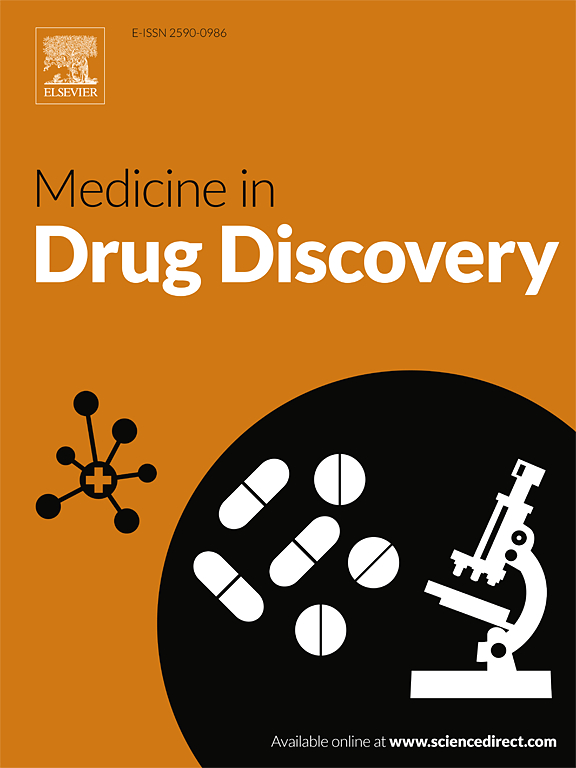使用 BH3 拟态药物靶向 BCL-2 家族蛋白治疗癌症:随机临床试验系统回顾
Q2 Medicine
引用次数: 0
摘要
细胞凋亡在致癌和癌症治疗中都发挥着重要作用。凋亡功能障碍可能使癌细胞得以存活。据预测,抗凋亡 B 细胞淋巴瘤-2(BCL-2)家族蛋白成员的过度表达是导致细胞凋亡功能障碍的主要原因。因此,针对癌症蛋白的研究一直备受科学家和药物开发人员的关注。迄今为止,调控癌细胞凋亡最成功的方法是开发 BH3 拟态药物,这些药物可以下调抗凋亡 BCL-2 蛋白的功能。临床试验已经涉及了一些分子,这些分子可模仿纯 BH3 蛋白的功能,从而抑制其抗凋亡功能。目前,这种方法是最有前途和最有效的癌症治疗策略之一。由于该家族有超过 15 个蛋白成员,本综述将重点介绍其中作为治疗靶点而备受关注的三个成员:Bcl-2、Bcl-XL 和骨髓细胞白血病 1(Mcl-1)都是抗凋亡蛋白。此外,该书还介绍了 Bcl-2、Bcl-XL 和 MCL-1 的主要功能、它们在恶性肿瘤中的作用以及它们的药物抑制剂。美国食品和药物管理局已经批准了第一种 BH-3 拟效药 venetoclax,这是一种口服 Bcl-2 抑制剂,可用于治疗慢性淋巴细胞白血病。这篇临床试验系统综述探讨了BCL-2家族蛋白抑制剂在治疗恶性肿瘤方面的疗效和临床意义。本文章由计算机程序翻译,如有差异,请以英文原文为准。
Targeting BCL-2 family proteins using BH3 mimetic drugs for cancer therapy: A systematic review of randomized clinical trials
Apoptosis plays a significant role in both carcinogenesis and cancer treatment. Apoptotic dysfunction may allow cancer cells to survive. Overexpression of anti-apoptotic B cell lymphoma-2 (BCL-2) family protein members is predicted to majorly contribute to apoptotic dysfunction. Therefore, targeting proteins in cancer has been of interest to scientists and drug developers. The most successful method to regulate apoptosis in cancer cells so far has been found in the development of BH3-mimetic drugs that may work towards downregulating anti-apoptotic BCL-2 protein functions. Clinical trials have dealt with a few molecules that mimic the function of BH3-only proteins and therefore inhibit their anti-apoptotic functions. Currently, this approach is one of the most promising and effective strategies for cancer treatment. Since the family has more than fifteen protein members, this review will focus on three members that have garnered interest as therapeutic targets: Bcl-2, Bcl-XL, and myeloid cell leukaemia 1 (Mcl-1), all are anti-apoptosis proteins. In addition, it covers the major functions of Bcl-2, Bcl-XL, and MCL-1, their implication in malignancy, as well as their pharmacologic inhibitors. The Food and Drug Administration has approved the first BH-3 mimetic, venetoclax, an oral Bcl-2 inhibitor shown to treat chronic lymphocytic leukemia. This systematic review of clinical trials investigates the efficacy and clinical relevance of BCL-2 family protein inhibitors in managing malignancies.
求助全文
通过发布文献求助,成功后即可免费获取论文全文。
去求助
来源期刊

Medicine in Drug Discovery
Medicine-Pharmacology (medical)
CiteScore
8.30
自引率
0.00%
发文量
30
审稿时长
21 days
期刊介绍:
 求助内容:
求助内容: 应助结果提醒方式:
应助结果提醒方式:


